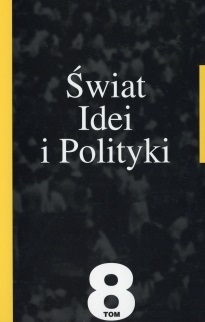The creativity and the competences for the political activity
DOI:
https://doi.org/10.34767/SIIP.2008.08.04Abstract
A minimal level of the politicians professionalism is his routine efficiency, capturing the standard repertoire of rhetoric, procedures, rituals and sociotechnical grippings. Highest degree of the professionalism is personifying a perfectional politician, distinguishing himself with creative aspirations and predispositions. That is discerning politician, able to useful innovations in a sphere of the idea, programs as well as methods. The politicians creativity contains ambitious goals, an ability to anticipation, transgression and innovation, the courage of searches, offering original social solutions. The politician is creative if he is self-developing, if he is overcoming his own limitations and customs; if he is able to force new, better forms of action - conquering the opposition in the environment. The creative-oriented leader knows how to organize collective efforts, to release social initiatives; anyway to achieve the efficient cooperation of his adherents or subordinate as executors. Most strongly stimulate to the creativity some kinds of motivation: aroused cognitive needs, achievements desire, productively directed ambition (when the actor try to confirm own personal worth and majority by value of his works). A conformism reduces the human creativity. It's showing in attitudes of politicians in various ways: as surrendering to the pressure of stereotypes and dominating opinion, avoiding unpopular though necessary decisions, acting against own views and principles; as the preference for personal security and constant career even at cost of the identity and dignity; finally, as the own comfort-loving nature. The conformistic decision-maker is a cunctator, simulant, spiner or escaper.

